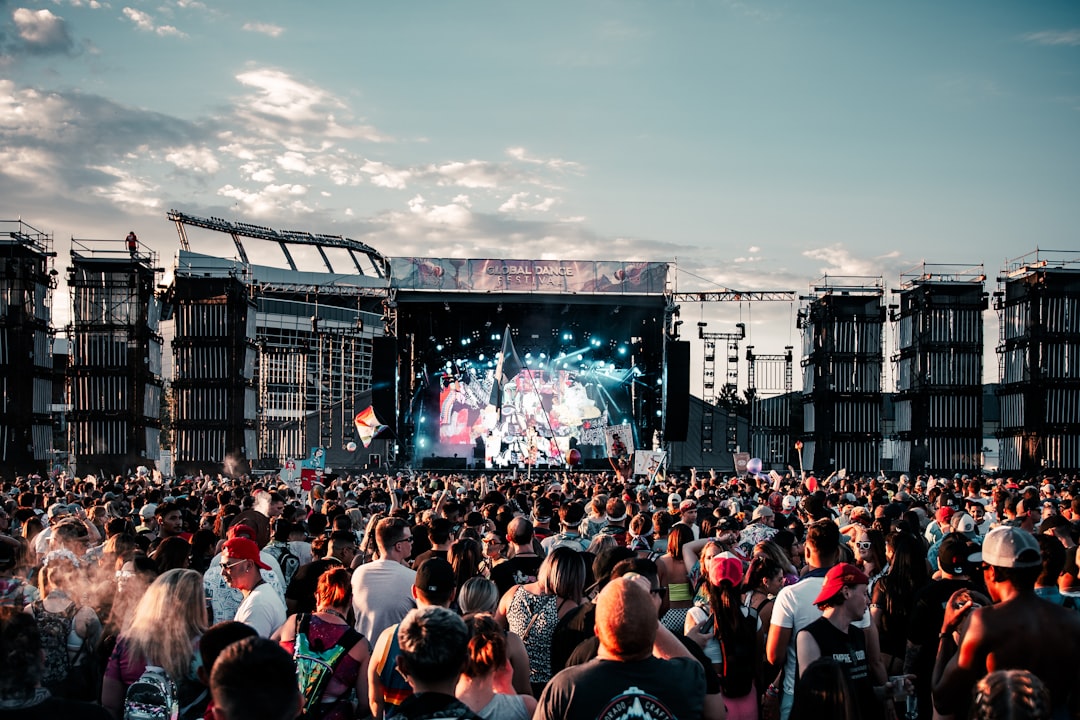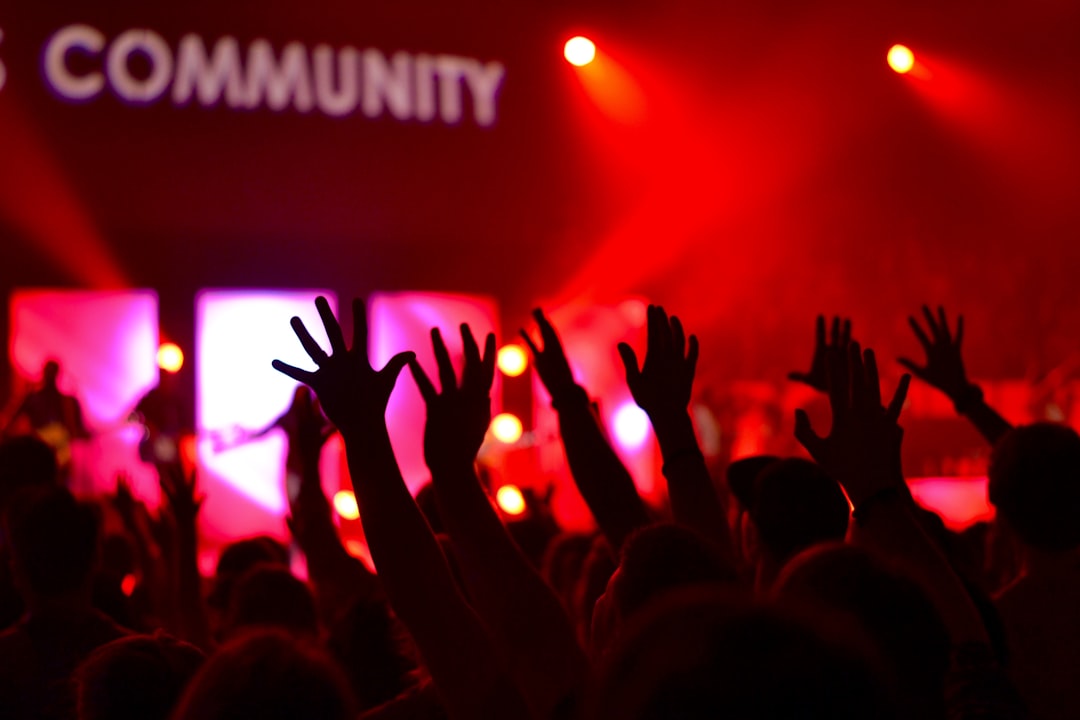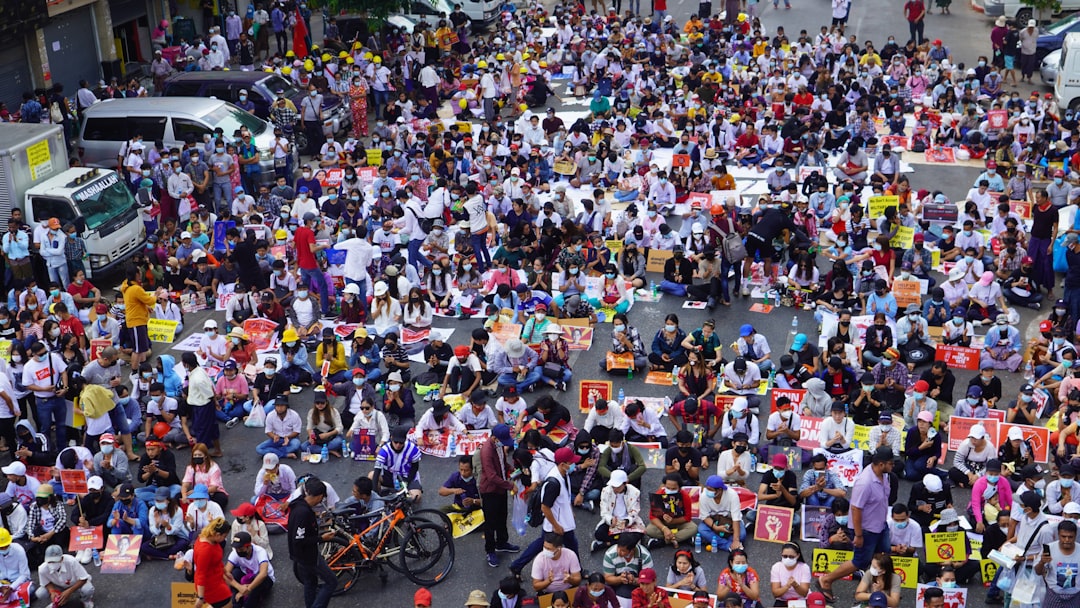Power: Collective vs. Individual
Do individuals or groups hold and wield power in society?

It’s my understanding that most of us grew up thinking power is something held by individuals, not even realizing that there might be an alternative. I know I grew up thinking of power as something wielded by Presidents or leaders, not ordinary people, and certainly not large masses of people (except maybe in a dangerous, riotous mob). Even the fiction I read taught me that a great hero, often a teenage boy in many of the science fiction and fantasy books I loved, would be the hero who found and somehow tapped into a mysterious power. The Harry Potters and the Paul Atriedes of the fantastical worlds I explored never shared their power, because it wasn’t possible, and so it didn’t occur to me that power was something that could be shared.
One shorthand for what a lot of us learn is Great Man theory. We learn that the Civil Rights movement was Martin Luther King, and then there were a bunch of other people (millions really) but anyway back to the life and work of MLK. We learn about the Indian Independence movement through Gandhi (and tens of millions of other people) but anyway back to the life and times of Mahatma Gandhi. And these men matter, the arc of history may have been very different without them, or without other ‘great men’ whose thoughts and actions helped shape the world. But this flat, oversimplified way of looking at history leaves out so many people. It leave out Loretta Scott King and Kwame Ture and Ella Baker and Medgar Evers and on and on. There were so many civil rights leaders that their names could and do fill books. And, maybe even more importantly, it leaves out movements.
The Civil Rights movement was not one, or two, or ten leaders; it was a movement. We can and should respect those who led the way intellectually and organizationally, and learn form them, but the Great Man approach leads us to miss so much. In school we often trace the lives of individuals, and learn little to nothing about what motivated ordinary people to join these organizations that constituted so much of the movement. For that matter, what were the organizations? What would it look like if we learned about the Congress of Racial Equality (CORE), the Southern Christian Leadership Conference (SCLC), and the Student Nonviolent Coordinating Committee (SNCC) as much as we learned about individual leaders? It would certainly teach us much more about how movements really work, and about the methods and strategies of organizing, but it would also teach us something different about power.
Learning about organizations rather than “great men” would show us how power can reside in groups, in the organized masses of people, rather than just in individuals. But that’s just one change educators could make. The form of our education could shift dramatically, as well as the content. Writing about innovative efforts in education taking place in Detroit, and elsewhere, Grace Lee Boggs writes in The Next American Revolution, “Let people teach each other, and allow students to organize themselves. Education, in other words, serves as a model democracy.” And this isn’t just aspirational. She’s discussing real examples around the city of Detroit where kids spend the summer learning community organizing, and how they learn organizing by practicing it, by doing it. In this way kids learn about bottom-up, collective power, and they get a feel for being powerful and impactful together. High school kids getting to feel powerful and getting to see how they can help change their community is a massive, even life changing event. They get to be a part of and feel a part of a collective that’s working together to better their neighborhood and take care of their needs.
This element about feeling powerful is so important, to me. Specifically, I don’t think there’s a way to learn about feeling powerful and being powerful in a collective other than practicing and experiencing it. In a society that’s so individualistic, where community organizing and the union movement and other engines of collective power have declined for decades, relatively few people grow up really directly experiencing the collective power we can hold together. There are beautiful sites of community in churches and synagogues and houses of worship and sometimes in certain schools and neighborhoods and organizations, but rarely is community explicitly thought of as a place where we can exercise power, together. It’s no coincidence that as much as strong communities themselves have been weakened and systemically displaced, sites where ordinary people come together to be powerful have been attacked ten fold.
So a lot of us grew up, and lived well into our adulthoods, without feeling collective power much. On occasion, we go to a protest and feel some of the immense strength that comes with all of us taking to the streets together, but rarely is it part of our daily lives. And one consequence of this is that a lot of people seek to feel some hint of power individually in various parts of their lives. Of course there are multiple reasons someone might want to feel powerful, and might act on that impulse, but in a society where our workplaces are almost never democratic, where lots of people don’t own their own homes, where the government is not truly accountable to the people, and where most people aren’t a part of an organization where they can really be a part of a collective force for good, it makes sense that people will seek these temporary individual highs. It’s not that it’s wrong to want some power and control over our lives in a world where the basic elements of control over our own conditions have been stripped away, it’s that we often go about it all wrong. Some of these instances are so small that they barely register on the radar of the people around us, while some are extremely harmful. The clearest example, to me, is how many people pursue political office more from a desire to build their own power than out of a desire to serve the people. This is not a judgment on the individuals involved in politics, although there’s plenty of room for that, but an example of a structural issue with the way we’re taught to approach power. Whether it’s in our personal relationships or our careers, most of us grow up being taught, and seeing and experiencing, that power is something that individual people can amass and wield, and rarely learning about the ways we can be a part of a group that builds power and uses it together.
Conversely, when we think of the tangible ways the working class has been able to exercise real power, it’s come through movements, groups and masses of people organized together to pursue common aims. And we each have to find the time and the ways to engage in the collectives that we’re called to be part of. As I see it, there is no other way to learn the feeling of collective power, the skills of organizing, and the strategies that can guide us all towards liberation and towards a better future on a livable planet than spending the hours engaged and active in these efforts. When we do plug in, the rewards are so vast. This feeling of collective power I keep talking about is a beautiful thing. The group I primarily organize with got connected with a tenant in our neighborhood last year. His landlord was harassing him on a level I hadn’t seen before. Sending goons around, leaving a massive hole in his ceiling, blasting music and even cooking in the hallway outside this elderly man’s apartment. But he was determined to fight back, not for himself as much as for his community and for the precedent and the struggle. So we organized with him, other groups got involved, and within a month we were holding a rally where 200 people came to support him. The energy on the block was electric, and still to this day, months later, a dozen people join him whenever he’s in court against this landlord. Fingers crossed, the judge appears to be very much on his side and the stall tactics of the landlord’s lawyer don’t look like they’ll be enough.
Everyone involved in the struggle I just described learned and felt what it means to act collectively, to build power together and to begin to wield it. And this struggle is not over. It’ll take time and patience and pushing through difficult moments, even as it also brings glimpses of joy, and hopefully in time the celebration of a great victory. Don’t get me wrong, I understand when folks want silver bullets, or shortcuts, I want them as much as anyone. But the boring message I have today is that we have to just do this work. To build the communities and the world we want we have to do this collective organizing. The less boring, maybe even surprising news is that the rewards of this organizing come before we even start to win victories. They come in feeling at home in loving community, in friendships, learning and profound joy.

Not all of this is new, I hope. But some of it certainly will be. Specifically living as part of a whole, acting as part of a collective entity, and feeling our collective power will be new to many of us. And the wins we generate together will often be new, but beyond that the very feeling of being part of something greater than ourselves can be new and beautiful. It can be hard to imagine, and for that reason you may simply have to try it. Organizing certainly is and will be difficult, and there will be new struggles to match the new joys, but we have to try; we have to act. For a whole host of reasons we most often live anticipated lives in this world. We think through scenarios, we engage with the mundane for much of our lives, and we read about or learn about or are familiar with much of what we’re doing to get involved with before we in fact get involved.
But sometimes we have to act, and learn as we go. Sometimes we have to bring our bodies and leap and know that our minds and spirits will follow. We can be armed with theory, with educated guesses, but without practice and action all that intellectual work means little. Paired with action, collective action, it can mean the world.



hello! i don’t know if it’s the right place to mention this, but i believe you meant “Coretta Scott King” in the second paragraph and not “Loretta Scott King.” i don’t mean to nitpick, i mention this because i think naming correctly is very important.
Thank you for this perspective! I always think of Harvard professor, Erica Chenoweth’s research on protests since the 1900’s.
She found that if only 3.5% of a population participated in sustained, nonviolent protest, change is possible nearly every time.